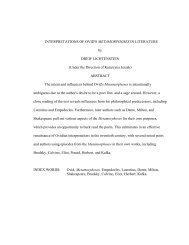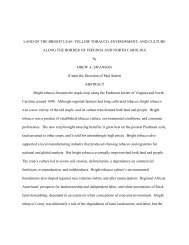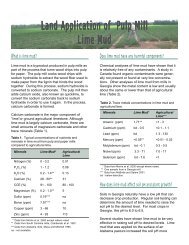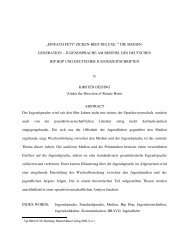RED BOAT TROUPES AND CANTONESE ... - University of Georgia
RED BOAT TROUPES AND CANTONESE ... - University of Georgia
RED BOAT TROUPES AND CANTONESE ... - University of Georgia
Create successful ePaper yourself
Turn your PDF publications into a flip-book with our unique Google optimized e-Paper software.
Following Ho’s success, a class <strong>of</strong> go dun wa jan (high class Chinese) soon appeared.<br />
They included salesmen for the British firms, pr<strong>of</strong>essional lawyers, physicians, and businessmen.<br />
They attended horse races, became horse owners at the Jockey Club, attended Western concerts,<br />
frequented receptions in high class hotels, and ate Western and Cantonese dishes in expensive<br />
restaurants, just like the British citizens living in Hong Kong. These families were highly<br />
influenced by the British culture. Some sent their children to study in England. When these<br />
children returned, they became lawyers and doctors. Listening to Western opera and orchestral<br />
music on phonograph records were home entertainment for some <strong>of</strong> these “high class Chinese.”<br />
They purchased homes at the Mid-level on Robinson Road, Bonham Road, and Caine Road<br />
along the coastal line. Below Caine Road, lay two “modern theatres:” the Tai Ping and the Go<br />
Sing Theaters built between 1921 and 1924. 135<br />
Before 1933, mixed gender performances were prohibited. Lawyer Lo Man Gum<br />
petitioned with success in lifting the prohibition. His reasoned that since men and women could<br />
watch opera at the same time, although on separate sides <strong>of</strong> the theater, why not act on the same<br />
stage? 136 Subsequently, the Tai Ping and Go Sing Theaters became venues for two rival troupes:<br />
the Tai Ping Kek Tyun (a mixed gender troupe), ran by Ma Si Tsang, stationed at the Tai Ping<br />
Theatre, and Got Seen Sing Men and Women Troupe, ran by Sit Got Seen, stationed at the Go<br />
Sing Theater. For the next nine years, Sit and Ma competed for ticket bookings in Hong Kong<br />
and at their sister theaters in Kowloon (Tai Ping with Tung Lok and Go Sing with Po Hing). A<br />
new production would be staged on the Tai Ping for two weeks and then move to the sister<br />
theater for the next two weeks then return for a performance in the Hong Kong theater.<br />
135 Sau Y. Chan, Hong Kong Yuet Kek Koi Syut: 1900-2002 [Synopses <strong>of</strong> Hong Kong Cantonese Opera: 1900-2002]<br />
(Hong Kong: The Chinese <strong>University</strong> <strong>of</strong> Hong Kong, 2007), iii.<br />
136 Zi Pang,Wan, “Yuet kek nu ban zi zor tam” [A preliminary investigation to the women troupe <strong>of</strong> Yuet Kek]<br />
(paper presented at the International Seminar on Cantonese Opera, Hong Kong, November 18-20, 1992), 379.<br />
63






